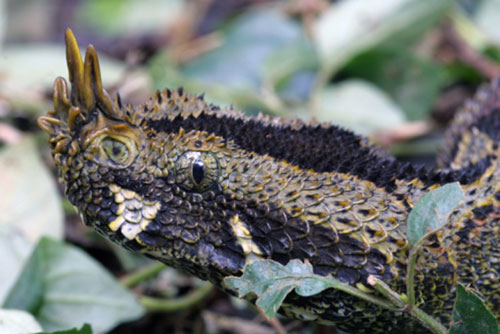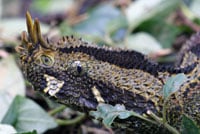Be honest and respectful when discussing reptile issues.
As the editor of REPTILES magazine, I receive a fair number of questions from reptile keepers who look to me to provide sage wisdom and guidance to help them with their reptilekeeping endeavors. To them, I say, “LEAVE ME ALONE!” Ha! I’m just kidding, of course. I always welcome questions, and I try to answer them whenever possible (though, admittedly, sometimes only when time allows), or I may also forward them on to people who might be able to answer them better than me. Yes, it’s true – even though I’m the editor of REPTILES, do not think that this automatically makes me an expert on every species out there. To be frank, I don’t consider myself an expert on any reptile or amphibian. That’s a pretty lofty title, after all. I’ve kept many different species over the years, and have of course read lots of articles about many different herpetological topics. And I know something about how to keep many herps healthy in captivity. But I’m not a veterinarian, I haven’t bred many species (only one, actually: bearded dragons), and while I have kept many different species, there are a lot I haven’t kept, too. So I’m coming clean: I don’t know everything there is to know about reptiles, and I continue to learn every time we’re putting together a new issue.

Venomous snakes such as rhino vipers are controversial captives.
Some questions, too, do not have easy answers. One off the top of my head is the question of whether it’s OK to use sand as a substrate for desert lizards. I have done so many times without any trouble, and there are a number of reptile sands available for purchase. Some come in pretty colors, too, and claim to be digestible. Despite these things, however, some hobbyists warn against the dire possibility of impaction that could result if animals are kept on sand. So here I am on the one hand saying it’s OK to use sand; on the other are the anti-sand people. Who’s right? I don’t know. I will say, however, that in regard to sand, I only ever say that I’ve used it without trouble, but that there are some precautions people can take to lessen the likelihood that their pets will swallow sand when eating, such as serving food on a plate and using sand only with larger lizards. That said, I would never criticize someone for swearing off sand because they were worried about adverse conditions that might arise from using it.
I’m often asked whether or not I think a particular reptile is easy to care for or not. This can be trickier to answer than you might think. I’ve written books and published articles about species that I think make good beginner pets. Unfortunately, I think sometimes when someone asks me if an animal is easy to care for, what they are really asking is, “Will this reptile live if I neglect it?” It’s true that some species don’t have as stringent care requirements as others, whether it’s because they don’t need as much space or eat a plentiful variety of readily available foods rather than a very specialized diet. Some animals, to put it very bluntly, can withstand abuse more than others. Yet even these animals will need attention. You have to feed them and clean them, and provide proper living quarters, and some people who may mean well soon find that even the most basic care is too much for them. You know who suffers then, right? So if I’m asked whether an animal is easy to care for, I try not to come off as sounding all, “Oh yeah, leopard geckos are a total piece of cake” and maybe giving the impression that they require zero care.
Speaking of whether or not it’s a good idea to keep an animal, there’s the question of venomous snakes. Is it a good idea to keep one? Some people would say never, and that keeping them can actually endanger the reptile hobby due to the possible danger involved. We’re not strangers to the occasional news report of a reptile owner who is injured (or worse) by a pet venomous snake or a large constrictor. Such reports are definitely not good PR for the hobby. Still, I’m an advocate for people being able to keep what they want, as long as it’s legal and as long as they do so responsibly. Some people would disagree with this, especially in recent years when it seems some new restrictive bill regarding the keeping of reptiles as pets crops up every other week. And they can’t be blamed, either. They care about the hobby just as much as I do.
None of this is revelatory, and I’m beginning to feel like I’m rambling. It’s just interesting to ponder the different angles from which people approach the hobby, from the professional industry people to the child who is getting his first beardie. Help people to the best of your ability. Be honest when they ask your opinion, and respect theirs, too.



